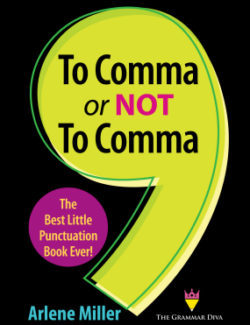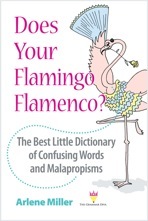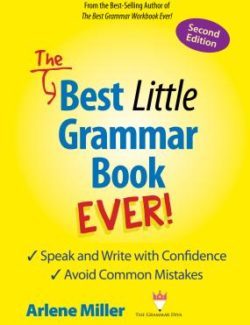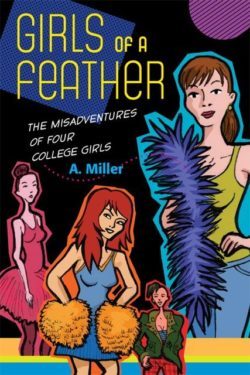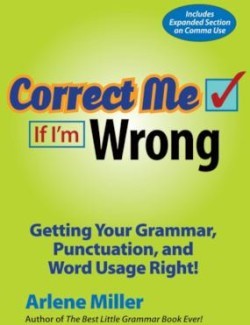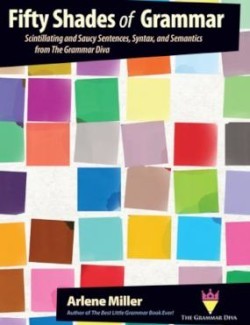Arlene Miller's Blog, page 37
December 13, 2018
Talents and Limitations
 I like to think I know my limitations. And I tend to dislike and envy — at the same time — those who don’t know theirs.
I like to think I know my limitations. And I tend to dislike and envy — at the same time — those who don’t know theirs.
For example, I am a copyeditor, so I look at other people’s writing. Writing seems to be one of those things that most everyone thinks they can do. (I know I just used the singular they. Sometimes it just works better.) But not so much with things like opera singing and ballroom dancing.
So I run across people who think they can write fiction, for example. Sometimes their grammar is not up to snuff, they switch from one point of view (I) to another (he) within a paragraph, the dialog is unnatural, or the plot impossible to follow. Or the book is just too plain boring for anyone to enjoy. And no, I don’t claim to be a great fiction writer. Much of it is because I have no training in it. I have little practice in it. I don’t consider myself a primo storyteller. If I were more interested in trying it, would I be better? Yes. Would I be great? Maybe, but maybe not.
So are these things natural talents or learned . . . or both? Do those limitations we put on ourselves actually prevent us from becoming great, or do you need some talent to begin with? Do people tend to be interested in doing the things they are good at, thus becoming better? And not so interested in things they have little skill in, so they never develop that skill? I am just asking and pondering. I don’t necessarily have answers.
As for me, I think I am a good writer of the type of thing I write: nonfiction, instructional things. I explain things well, which is why I also think I have some talent as a teacher. Classroom noise control? No talent at all. I have always had a talent for grammar, and I was great at Latin. But I couldn’t learn French worth a damn. I was a middling at best ballet dancer, but that is something that also takes a certain type of body, certain types of muscles . . . but maybe all skills are basically like that.
I took piano lessons as a kid. I was decent at it. I practiced as little as I could get away with. If I had practiced six hours a day, would I ever have been able to be a concert pianist? Who knows? Were my hands too small, my fingers too short? Maybe.
I was, and to some extent still am, a pretty great tap dancer. I had the natural sense of rhythm and the fast feet to be really good. If I had stuck with it instead of getting married and raising a family, my priority, I could maybe have become as well-known as some of the tap dancers I know. On the other hand, I wouldn’t have become a ballerina or Olympic ice skater no matter what I did.
When I was in my 20s, I decided I wanted to be on Broadway. No, I had no acting talent to speak of, but I did a lot of jazz dance. So, I figured I would need to learn how to sing. So I started taking voice lessons. My teacher said I was a “natural.” I knew I wasn’t, and she was likely depending on the money I paid her for private lessons. But if I had stuck with it, I might have been trainable to have a good enough voice to sing on Broadway — in a chorus.
Some people exaggerate their skills. They think they are great writers, but their editors think they are not. They think they are great editors, but their writers are not pleased.
Sometimes it is the parents who think their kids are great, whereas the kids know better. Kids can usually tell that they aren’t the best ballerina in the class or the best ice skater in the competition. I have been on both sides of those situations!
We have all seen kids with special talent. There is that special talent that is not common. Lots of kids can be trained to ice skate perhaps, but I have seen kids with amazing talent that is natural and not a result of training. It comes from within. (Since my daughter is a skater, I am familiar with that particular world.) I have a friend who has a niece who is 11 or 12. She is an amazing pianist. She can play, after a year or two of lessons, what it took me 6 years to play . . . and much better. She is a special talent. I am addicted to those television talent shows. There are some kids of 13 who sing like adults — and as good as big stars — without any lessons. There are people with really special talent.
But there are people who succeed at this type of endeavor with hard work too. I can recall two such instances. When I was tap dancing (as an adult), there was a woman in my class who was okay, but nothing special. I was much better. Her rhythm was questionable and she just didn’t sound very good. Well, she made it to a performing career through a lot of hard work. I couldn’t believe how far she got. And she didn’t have an extreme amount of natural talent.
When my daughter was competitive ice skating, there was a girl who was a bit younger and hadn’t been skating as long. She was — I hate to say it — terrible — but she was. Her family had enough money to train her to be good, but would money be enough? Would hard work be enough? Her mother saw at this girl’s first competition that she was terrible. Within two days, she switched her daughter to a rink that was more challenging and trained more competitive skaters. I guess her mother blamed the coaching and not a lack of ability. Well, I can tell you that this girl eventually went to sectionals, if not nationals, and became an amazing skater. So what is it? Good training? Hard work? Natural ability? In this case, all of it.
I have no conclusions here. The topic came to mind because I am involved in things that require talent, and I tend to be rather modest. Other people seem to brag about their accomplishments, and I think they are more successful. It is not infrequently that I feel like a real underachiever. Perhaps many of our limitations are the limitations we put on ourselves.
I would love to hear your comments on any of the ideas brought up in this post. I would also like to hear your past or present New ‘s Resolutions for my New Year’s blog post in a couple of weeks. Please e-mail those to me at info@bigwords101.com or bigwords101@yahoo.com. For comments on this post, just use the comment form.
In 2019 I think I will write more about grammar, punctuation, and word usage. However, if you have an idea for a blog post on anything related, please e-mail me — even a book review might be a blog post idea.
Remember that books make great holiday gifts — both mine and every other author’s!
December 6, 2018
Respect My Authority!!!!
 As a copyeditor and grammarian, I sometimes find myself having to defend my position on a point of grammar or punctuation.
As a copyeditor and grammarian, I sometimes find myself having to defend my position on a point of grammar or punctuation.
For example, someone will ask me why I took out the comma before too at the end of the sentence:
I want to go to Paris too.
Or they will tell me they learned to put only an apostrophe to indicate a possessive in a word that ends with s:
This is Thomas’ book. (I will change it to Thomas’s.)
Or they will ask me if there is a comma after a short introductory phrase like of course:
Of course I will watch your dog for you.
And then, there is the debate about the Oxford comma:
For breakfast I had eggs, ham, toast, vodka and orange juice. OR
For breakfast I had eggs, ham, toast, vodka, and orange juice.
Mimosa or no????
There are no real answers to these questions.
You may remember that the title of this post is a quote by Cartman from South Park.
Here are some facts:
English is the official language of 67 countries (although not the United States).
English is the third most commonly spoken language in the world (after Mandarin and Spanish).
Over 80% of the information stored on computers worldwide is in English.
AND . . . English is the only language that has no AUTHORITATIVE organization guiding it.
French has the Academie Francaise.
Spanish has the Real Academia Espanola.
German has the Rat fur Deutsche Rechtschreibung.
These organizations are responsible for controlling the evolution of their respective languages in terms of usage, vocabulary, and grammar. Here is a more complete list of such organizations.
What English has are a bunch of dictionaries and a host of style guides. Dictionaries may disagree on spelling, hyphenation, and capitalization. Style guides generally do not handle grammar per se, but punctuation (some, like Oxford commas), capitalization (sometimes), and issues such as writing headings and doing citations. Often when you write something, you will be following a certain style guide, i.e., The Chicago Manual of Style or the Associated Press Stylebook. Many companies have their own style guides with terminology, jargon, and writing standards that may be specific to them, so if you work there you may be following their style guide as well as a more general style guide (like Chicago).
Style guides don’t really handle grammar. A dangling participle is always going to be a dangling participle. No style guide is going to say these sentences are okay:
While still in diapers, my mother remarried.
Freshly painted, I picked up my car at the shop.
And no style guide will disagree that spoken is the past participle of speak, or have gone is the past participle of go.
I have spoke to him many times. (NO)
I have went to Europe three times. (NO)
In English, there are different style guides for different types of writing:
AP (Associated Press) style for journalism and most forms of corporate communications
USGPO style or AGPS style for government publications
The Chicago Manual of Style for academic publishing — and for when there is no other guide you need to follow
APA (American Psychological Association) style for the social sciences
AMA (American Medical Association) style for medicine
Bluebook style for legal citations
MLA (Modern Language Association) for academic theses, particularly for citations
Then, there are the other guides that are, or have been, popular:
Kate Turabian (I remember this one from my college days.)
Strunk and White (meh! Similar to my first book, but mine is friendlier, I think.)
Gregg Reference (I love this one.)
So, if you are wondering who makes the rules of the English language, the answer is no one (or everyone).
Please Read These Important Notes from The Grammar Diva!
I have heard from people that my posts are not coming through on e-mail every week. If you are not receiving my posts by e-mail, and you have signed up, and you used to get them, please let me know by e-mail: info@bigwords101.com
If you signed up to subscribe for my blog posts, and you don’t get them, make sure you have gone into your e-mail and confirmed that you want them. Many people skip this step, and if you do, you won’t get the blog posts. This is the necessary double opt-in.
To prepare for my New Years post, I would like you all to send me your New Year’s resolutions, especially if they are out of the ordinary, but even if they are the usual ones. You can also include past resolutions. I am making a list (no names) and checking it twice. Please e-mail them to info@bigwords101.com. Please DO NOT write them as a comment to this post. You can send the resolutions right through Christmas and beyond.
My offer still holds. If you would like a signed copy of any of my books for the holidays, just e-mail me at that same address: info@bigwords101.com. If you would prefer to buy online, remember that my books make great stocking stuffers for your word-loving friends, students, educators, and who knows who else?
November 29, 2018
Writing Lists: Part 2
Two weeks ago we talked about writing lists: how to make the items in the list parallel and how to punctuate a horizontal list. Today we 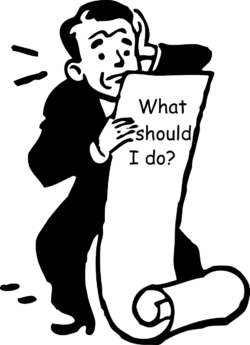 will talk about punctuating vertical lists.
will talk about punctuating vertical lists.
Let’s start with the introduction to the list. Sometimes the introduction is a sentence; other times it isn’t. Here are a few possible intros for the same list:
Here are the ingredients for the chocolate cake:
The following ingredients are needed for make the chocolate cake:
The ingredients for the chocolate cake are as follows:
The ingredients for the chocolate cake are
The ingredients for the chocolate cake:
The following are needed for the chocolate cake:
Those introductions are all fine. Well, almost all. In #6, we used to say not to use the word following without it describing something as in #2. Following here is an adjective, so it really needs a noun. And #1 is okay, but it is never best to begin a sentence with there is or here is, although it is not grammatically incorrect to do so.
The punctuation for those introductions is also correct. Since the word following isn’t used in #1, you could technically use a period instead of a colon, but why would you? A colon tells you to expect a list. Notice that there is no colon in #4, which resembles the horizontal list in the first post in this series (The ingredients for the chocolate care are flour sugar, eggs, milk, and cocoa.). Could you put a colon in #4? Since it stands by itself, it would be okay to use a colon, but you certainly don’t need to. The rule, when we talked about the horizontal lists, was not to use the colon after a verb. Now look at #5. This intro is not a complete sentence like all the others (except #4). However, it doesn’t end in a verb either. It definitely needs a colon, but it sounds kind of wonky to me anyway.
Moving on . . . how do you punctuate the items in the list?
If the items are each complete sentences, they need a period. Or, if they happen to be questions (it could happen), they need question marks. Single-word list items and phrases should not get periods after them.
The following ingredients are needed for the chocolate cake:
flour
sugar
eggs
milk
baking powder
Perform the following steps to change the batteries:
Open the battery door with a screwdriver.
Remove the used batteries.
Insert two new AA batteries following the guidelines for plus and minus ends.
Close the battery door with the screwdriver.
Should you use bullets or numbers? If you are listing steps and the order is important, use numbers. Also, if you are saying how many items you are presenting, you might also want to use numbers (Here are the five ingredients you need for the pie:) Otherwise, you can just use bullets. But you don’t even need bullets. Usually items are indented for ease of reading and to show off the items as being in a list.
If you want, you can do a vertical list much as you do a horizontal list:
The ingredients for the cake are
flour,
sugar,
eggs,
milk,
baking powder, and
cocoa.
That list is perfectly fine. It would probably also be fine with no punctuation at all, but I think it would look a little bare.
Grammar Diva News
I did it! I wrote a 50K-word book in 24 days, winning NaNoWriMo (National Novel Writing Month) with six days to spare. I printed out my certificate and already have my winner’s tee shirt (which you do have to pay for). Now the hard work begins: making the book into something decent and readable. It is a very rough draft.
However, I plan to make it a good read, and I have put it up for preorder with a tentative release date of May 1, 2019 (maybe sooner??) It is not yet available as a Kindle preorder because they accept preorders only 90 days in advance. However, it is available so far on Nook, Kobo, and iBooks.
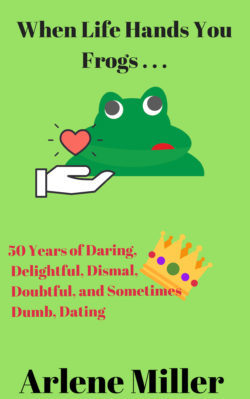
Books Make Great Holiday Gifts and Stocking Stuffers!
If you would like to order a personally signed copy of any of my books, please e-mail me at info@bigwords101.com. Free shipping!
November 23, 2018
Thanksgiving . . . and Beyond
Thanksgiving . . . some quotes you might enjoy:
An optimist is a person who starts a new diet on Thanksgiving Day – Irv Kupcinet
Feeling gratitude and not expressing it is like wrapping a present and not giving it – William Arthur Ward
I am thankful for laughter, except when milk comes out of my nose – Woody Allen
When you practice gratefulness, there is a sense of respect toward others – Dalai Lama
Gratitude turns what we have into enough. ~Author Unknown
Grace isn’t a little prayer you chant before receiving a meal. It’s a way to live – Attributed to Jacqueline Winspear
We can only be said to be alive in those moments when our hearts are conscious of our treasures – Thornton Wilder
The struggle ends when the gratitude begins – Neale Donald Walsch
Wherever I have knocked, a door has opened. Wherever I have wandered, a path has appeared – Alice Walker, In Search of Our Mothers’ Gardens(Acknowledgments)
My socks may not match, but my feet are always warm – Maureen McCullough
As we express our gratitude, we must never forget that the highest appreciation is not to utter words, but to live by them. ~John Fitzgerald Kennedy
In this world of sin and sorrow there is always something to be thankful for; as for me, I rejoice that I am not a Republican. ~H.L. Mencken (a little Thanksgiving humor)
Thank you to these websites for the quotes!
and Beyond . . .
Here is a reprint of an article I hope you enjoy — now that you might be thinking about holiday gifts:
The holidays are upon us, and once again you are stumped. What do you get someone who apparently has everything? Or at least has the money to buy everything? What do you buy someone you don’t know so well? Books, that’s what! Why? Here are some great reasons:
Books are easy to get. You can get them in a store or online and you can have them delivered anywhere. You can even mail them book rate and save some money.
Books are easy to wrap! No weird shapes! That helps people who wrap the way I do! They also fit nicely in gift bags.
Books come in a huge variety of prices from the very inexpensive on up.
You can buy books for any age recipient, from an infant to a senior — and you can generally tell, or find out, the ages the book was intended for.
You can buy books for any gender of recipient.
Everyone is interested in something, and there is always a book for that “something.” If you don’t know what that something is, there are always bestsellers that interest most everyone.
Books keep on giving. If you like a book, you can then share it with someone else, who can then share it with someone else. Then, you can donate it.
Books are entertaining. Books can take you into a new world — if even for just a little while.
Books are very portable. Especially ebooks. They travel well and fill time well.
Books are educational!
If you would like to purchase a signed copy of any of The Grammar Diva’s books, please send me an e-mail at bigwords101@yahoo.com
Free shipping. Sorry, but shipping only to the United States.
November 16, 2018
Writing Lists: Part 1
 There are basically two types of written lists: horizontal lists and vertical lists. Many people have questions about capitalizing and punctuating lists.
There are basically two types of written lists: horizontal lists and vertical lists. Many people have questions about capitalizing and punctuating lists.
Here is a horizontal list:
These are the ingredients for the cake: flour, sugar, eggs, baking powder, cocoa, oil, and cinnamon.
Here is a vertical list:
These are the ingredients for the cake:
flour
sugar
eggs
baking powder
cocoa
oil
cinnamon
Does it matter whether you use a vertical list or a horizontal list? No. However, in this case, where you have a single word as a list item and no particular order to the list items, a horizontal list makes sense — and saves a lot of space.
The one thing that sometimes trips people up with horizontal lists like the one above is the punctuation. Look at this similar “list” of the same items:
The ingredients for the cake are flour, sugar, eggs, baking powder, cocoa, oil, and cinnamon.
Note that there is no colon in this list. It is different from the first list:
These are the ingredients for the cake: flour, sugar, eggs, baking powder, cocoa, oil, and cinnamon.
The ingredients for the cake are flour, sugar, eggs, baking powder, cocoa, oil, and cinnamon.
In list 1, cake ends a sentence, so you use a colon before the list items. These are the ingredients for the cake is a complete sentence.
In list 2, the ingredients for the cake are is not a sentence; the list of items completes the sentence, so you use no colon.
In other words: Don’t use the colon after a verb (are is a verb in list 2).
It doesn’t matter at all which way you want to write that list. Just know when the colon would be incorrect. As far as the Oxford comma before and cinnamon, well, that is up to you, but I would use it.
Although it is important in horizontal lists, parallelism of list items is even more important in a vertical list where you are likely to have longer list items. Parallelism in list items simply means that all your list items are of the same grammatical structure. If one item in your list is a complete sentence, all items should be complete sentences. If one item is a phrase, all items should be phrases. And they should all be structured the same way.
Here is a vertical list that is not parallel:
These items will be discussed at the meeting:
Raises
Layoffs
Ad campaigns
Whether or not we will have a Christmas party
The last item is a clause. Christmas party would be parallel to the rest of the items.
Here is another vertical list that is not parallel:
Here are some ideas I have for our vacation:
We will visit the zoo.
We will hike through the canyon.
We will rent bicycles and ride through the countryside.
Eating out at five-star restaurants is fun too.
Once again, the last item is not parallel with the others. Although the items are all complete sentences, the last one is not structured the same way and doesn’t seem to fit.
Here is another list that is not parallel:
Here are some ideas I have for our vacation:
visiting the zoo
hiking through the canyon
a bicycle ride through the countryside
eating out at five-star restaurants
This time item #3 is written in a different structure. It’s not too bad, but it still is not parallel (riding a bicycle through the countryside).
And here is a horizontal list that isn’t parallel:
We need someone to hang the decorations, pick up the cake, set up the chairs, and pouring the drinks.
What about numbers versus bullets? You don’t need numbers or bullets. You can just indent your items to make them stand out. Bullets are always fine too. Numbers are preferable when your list items need to be in a certain order, or when the number of items is significant (for example, if your lead-n sentence is Five Things to Do in Paris).
Next week will be the annual Thanksgiving post (even if we are a day or two late). In two weeks, watch for Lists Part 2, which will include the punctuation and capitalization of lists.
————————————————————————————————————————————————————–
Grammar Diva News
As I mentioned before, I am participating in NaNoWriMo, National Novel Writing Month, the goal of which is to write a 50,000 word novel (or 50,000 words of a longer novel) in the month of November. I am actually writing a memoir, so I am called a Nano Rebel, but that’s okay! I am now up to over 34,000 words. Because I am writing so fast, the draft manuscript will need a lot of work! However, I will be putting the book up for pre-sale on Kindle and other online readers (you can’t offer pre-sales on Amazon for paperbacks) probably next week. I promise you a good read. I am aiming for May 1, 2019, release date.
November 8, 2018
5 Reasons Why You Should Teach Grammar to Your Children Early
 The Grammar Diva is happy to present this guest blog by Annabelle Fee of SmileTutor.
The Grammar Diva is happy to present this guest blog by Annabelle Fee of SmileTutor.
Grammar is an English word that comes from the Greek phrase grammatikē technē. This phrase means “the art of letters.” Therefore, the Greek saw grammar as the artistic composition of letters to create meaning. Today, most scholars refer to grammar as a set of rules governing the use of words, phrases, and clauses in a particular language.
Teaching your children this “art of letters” from an early age is an excellent idea for the following reasons.
1. Grammar Enhances a Child’s Creativity
Grammar is a tool that people use to express their thoughts, emotions, and ideas. Failing to understand it impedes an individual’s ability to express himself articulately and creatively. Teaching your children grammar from an early age removes this hindrance to their creative skills. Remember, the attitudes, abilities, and mannerisms that kids will have in the future start at a young age. Therefore, encouraging creativity at an early age ignites their creative skills while failing to do so will stifle them.
2. Grammar Helps Children Decipher Meaning
Many people fail when it comes to constructing sentences or phrases that are grammatically correct. Consequently, those who cannot decipher these sentences lose their intended meaning. Teaching your children grammar helps them understand poorly constructed sentences and phrases. In other words, they would know what the person in question is trying to tell them because they know what to look for in a sentence.
3. Learning Grammar Helps Children Succeed as Adults
Firms with annual sales of $10 to $60 billion have higher English proficiency scores than firms making less than $10 billion yearly. Grammar is critical in specific business sectors such as aviation and logistics. Other industries such as engineering and consulting require strong language skills as well. These assertions suggest that learning grammar contributes to a child’s success in adulthood. Start honing language skills in your children when they are young so that they can perfect them as adults.
4. Grammar Facilitates the Building of Relationships
Some of the bonds that children will create in their childhood will last into adulthood. The longevity of these bonds depends on how strongly they were formed. Communication is critical to this formation process.
For example, disagreements arise because people misunderstand each other. That means either the sender failed to construct his or her message well or the recipient cannot decipher it correctly. Teaching children grammar helps them form sentences correctly.
Decoding these constructions will be within their realm of possibilities as well. Therefore, the conversations that you will have with them will be fruitful because misunderstandings will be few. The same case will apply to their interactions with other people.
5. Grammar Makes Communication Enjoyable
Presenting information coherently and excitingly helps people understand what you are saying. It also helps them contribute to the conversation because they know what your sentences mean. The same case applies to your children as well. People will marvel at how well they communicate when you teach them grammar. Moreover, they will find that talking to them is an enjoyable experience because the exchange of meaning in a conversation occurs flawlessly.
Teaching your kids grammar is critical for various reasons. They include enhancing their creativity, helping them understand others, and facilitating their success in adulthood. Grammar helps them build relationships and hold stimulating conversations as well. You can teach your children this “art of letters,” or you can hire someone to do it for you. Hiring a professional English tutor is an excellent idea because tutors know what to teach their students and when to do it.
 Annabelle Fee is part of the Content and Community team at SmileTutor, sharing valuable content with their own community and beyond. Their passion is to match students and tutors in a wide range of subjects including languages, science, and humanities, as well as providing tutoring around exams and specific subject levels.
Annabelle Fee is part of the Content and Community team at SmileTutor, sharing valuable content with their own community and beyond. Their passion is to match students and tutors in a wide range of subjects including languages, science, and humanities, as well as providing tutoring around exams and specific subject levels.
Please check out the website.
https://smiletutor.sg
——————————————————————————————————————————-
Grammar Diva News
Next week The Grammar Diva’s post will be about writing lists, both horizontal and vertical: punctuation, capitalization, parallelism
I am plugging along in my NaNoWriMo memoir (since I am not actually writing a novel, I am referred to as a Nano Rebel, but that’s OK. I have about 19,000 words so far, and I am trying to write 2,000 words a day, which will have me finished in plenty of time if I can keep it up!
November 2, 2018
For Instants . . .
When I taught seven grade English, I used to give my students a Word of the Day. When we finished five or ten words, we would have a 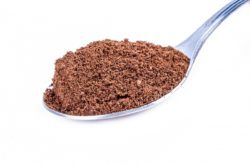 vocabulary quiz. The students needed to know the spelling, the part of speech, the definition, how to use the word in a sentence, and any related words we talked about that were different parts of speech taken from that word. I went pretty much alphabetically, and I always assigned the following words for the same quiz:
vocabulary quiz. The students needed to know the spelling, the part of speech, the definition, how to use the word in a sentence, and any related words we talked about that were different parts of speech taken from that word. I went pretty much alphabetically, and I always assigned the following words for the same quiz:
Instant
Instance
Incident
Incidence
Yes, it was very confusing. First of all, the plural of some of the words sounds the same as the singular of another: instants sounds the same as instance. Incidents sounds the same as incidence. Since instant is usually an adjective, it isn’t often used as a plural, but it can be used as a noun:
These cups of coffee are all made from ground beans, but these others are all instants.
Second of all, instance, incident, and incidence have similar meanings. Instant is a little different and most people know that it means “a moment, or a short span of time.”
Instance, which sounds like the plural of instant, doesn’t have much to do with instant. It means “a case or occurrence of anything, or an example put forth as proof”:
He often lies to his parents, but in this instance he was telling the truth.
An incident is simply something that happens, often negative; an individual occurrence or event:
There was an incident outside the restaurant last night, and the police were called.
After several incidents at school, she was suspended.
Instance is close to incident in meaning:
After the third instance of her being insubordinate at school, she was suspended.
The plural of incident sounds the same as the singular incidence. Incidence means “the rate or range of occurrence of something, especially of something unwanted”:
Since the new stop sign was placed on my street, the incidence of accidents has decreased.
The incidence of crimes has increased in that neighborhood since the unemployment rate has risen.
Your vocabulary test will be on Wednesday. (Just kidding!)
Grammar Diva News
I am back from my ten-day Florida vacation and a month of taking it easier. Now, new, original blog posts are back, as are my words of the day on social media (Twitter, Facebook LinkedIn, Google+, and Pinterest) every weekday. I am doing two-letter Scrabble words for the month of November.
November is also National Novel Writing Month (NaNoWriMo). The last time I entered this contest of writing 50,000 words (about 250 pages) in the thirty days of November was in 2011, when I wrote my novel, now called Birds of a Feather, a light and entertaining book about four college girls in Boston during the 1980s. A few years ago, I attempted to write one of the sequels I had planned for that novel during NaNoWriMo. I started, but then lost a couple of days’ work on my computer (Poof! You know how that happens!) and was unable to recreate what I lost. I never have (yet) written those sequels. However, I have been wanting to write a book about my dating adventures for several years or more. Friends have also encouraged me to write it, so I am using this NaNoWriMo to finally do it. Yes, I know, it is supposed to be a novel, but a memoir is close enough in my book. So, it is day number 2 and I am on my way to write at Starbucks. Don’t worry. I am changing all the names and other identifying details in my book to protect the innocent (and guilty). Here is the mockup cover I did and the preliminary title. I do plan to publish the book at some point, but I think it is going to need a lot of work after the November first draft!
And please don’t forget about my grammar books! And reviews are always greatly appreciated, especially of my punctuation book, To Comma or Not to Comma.
October 26, 2018
Best of the Grammar Diva: Trick or Treat? The Origin of Halloween Words
Happy Halloween! Here are some of the stories behind the words of Halloween!

Trick or Treating
The practice of trick or treating began with the Celtic tradition of celebrating the end of the year by dressing up as evil spirits. The Celts believed that, as we moved from one year to the next, the dead and the living would overlap, and demons would roam the earth again. So dressing up as demons was a defense mechanism. If you encountered a real demon roaming the Earth, they would think you were one of them.
The Catholic Church turned the demon dress-up party into “All Hallows Eve,” “All Soul’s Day,” and “All Saints Day” and had people dress up as saints, angels, and even demons.
Beginning in the Middle Ages children (and sometimes poor adults) would dress up in costumes and go around door to door begging for food or money in exchange for songs and prayers. This was called “souling.”
But trick or treating did not migrate along with Europeans to the United States. It didn’t re-emerge until the 1920s and 1930s. Then, it paused for a bit during World War II because of sugar rations.
The term “trick or treat” dates back to 1927.
The British apparently hate Halloween. In 2006, a survey found that over half of British homeowners turn off their lights and pretend not to be home on Halloween.
Halloween
Halloween also known as Allhalloween, All Hallows’ Eve, or All Saints’ Eve, begins the three-day observance of Allhallowtide, the time in the liturgical year dedicated to remembering the dead.
It is believed that many Halloween traditions originated from ancient Celtic harvest festivals and that such festivals may have had pagan roots. Some believe, however, that Halloween began solely as a Christian holiday, separate from ancient festivals.
In many parts of the world, the Christian religious observances of All Hallows’ Eve, including attending church services and lighting candles on the graves of the dead, remain popular, although elsewhere it is a more commercial and secular celebration. Some Christians historically abstained from meat on All Hallows’ Eve, a tradition reflected in the eating of certain vegetarian foods on this day, including apples and potato pancakes.
The word “Hallowe’en” means “hallowed evening” or “holy evening.” It comes from a Scottish term for All Hallows’ Eve (the evening before All Hallows’ Day).
Jack-O-Lantern
The original jack-o’-lanterns were carved from turnips, potatoes or beets.
People have been making jack-o’-lanterns at Halloween for centuries. The practice originated from an Irish myth about a man nicknamed “Stingy Jack.” According to the story, Stingy Jack invited the Devil to have a drink with him. True to his name, Stingy Jack didn’t want to pay for his drink, so he convinced the Devil to turn himself into a coin that Jack could use to buy their drinks. Once the Devil did so, Jack decided to keep the money and put it into his pocket next to a silver cross, which prevented the Devil from changing back into his original form. Jack eventually freed the Devil, under the condition that he would not bother Jack for one year and that, should Jack die, he would not claim his soul. The next year, Jack again tricked the Devil into climbing into a tree to pick a piece of fruit. While he was up in the tree, Jack carved a sign of the cross into the tree’s bark so that the Devil could not come down until the Devil promised Jack not to bother him for ten more years.
Soon after, Jack died. As the legend goes, God would not allow such an unsavory figure into heaven. The Devil, upset by the trick Jack had played on him and keeping his word not to claim his soul, would not allow Jack into hell. He sent Jack off into the dark night with only a burning coal to light his way. Jack put the coal into a carved-out turnip and has been roaming the Earth with ever since. The Irish began to refer to this ghostly figure as “Jack of the Lantern,” and then, simply “Jack O’Lantern.”
In Ireland and Scotland, people began to make their own versions of Jack’s lanterns by carving scary faces into turnips or potatoes and placing them into windows or near doors to frighten away Stingy Jack and other wandering evil spirits. In England, large beets are used. Immigrants from these countries brought the jack o’lantern tradition with them when they came to the United States. They soon found that pumpkins, a fruit native to America, make perfect jack-o’-lanterns.
Pumpkin
The large round fruit of the creeping cucurbitaceous plants of the genus Cucurbit. They have a thick orange rind, pulpy flesh, and numerous seeds. The word is from the Middle French pompon, Latin peponem (melon), from the Greek pepon (melon), meaning “cooked” (by the sun) or “ripe.”
In American English, the word is also colloquial for a person with hair cut short all around., recorded from 1781.
Witch
In mythology and fiction, a woman believed to practice magic or sorcery, especially black magic. From Old English wicca.
In a c.1250 translation of “Exodus,” witches is used to describe the Egyptian midwives who save the newborn sons of the Hebrews.
Witch doctor is from 1718
Goblin
In folklore a small grotesque supernatural creature, regarded as malevolent towards human beings.
From the early 14th century, “a devil, incubus, fairy”; from Old French gobelin.
Thank you to the following websites:
https://blog.oxforddictionaries.com
October 19, 2018
Best of the Grammar Diva: Manspreading May Cause Butt Dialing
 Manspreading!
Manspreading!Originally published 9-1-2015
Manspreading? Butt dialing? These are real words? Well, yes . . . and no.
The Oxford Dictionary has added 1000 new words to its online dictionary in the latest quarterly update. Many of these words are slang, such as manspreading and butt dialing. When words become commonly used, the Oxford Dictionary adds them. Although you now may wonder if such words are now considered esoteric and high falutin — after all, we are talking about the Oxford Dictionary — think again. The Oxford Dictionary adds words that are in common usage in the English language. However, there is also the Oxford English Dictionary, “the definitive record of the English language.” Although that dictionary is also updated with new words, 500 in the latest update, it is the more formal dictionary. However, both dictionaries are published by the Oxford University Press.
The Oxford Dictionary – Contains informal and slang words that are common enough to be included.
The Oxford English Dictionary – Contains new words, but not those considered slang.
Here are some of the highlights of new words added to the Oxford Dictionary:
Manspreading – This word was coined by commuters and refers to men on public transportation who sit with their legs wide apart, thus taking up more than one seat so no one can sit in the surrounding seats.
Butt dialing – Accidentally calling someone with your cell phone in a rear pocket (possibly while you are manspreading).
Awesomesauce – Great or wonderful. I have heard this word only on an insurance commercial. I am surprised it is even slang.
Beer o’clock and wine o’clock – No, I didn’t make this up. I think you probably decide what times these really are.
Cat cafe – I had never heard of this before my daughter happened to tell me about it a few days ago. Imagine a Starbucks combined with a cat shelter. Yes, this is where customers come to play with cats who live at the cafe.
Brain fart – This one had been around a while and is a temporary loss of mental capacity
Bruh – Used to refer to a male friend and often used as a form of address.
Cakeage – Like corkage for wine, a charge made by a restaurant for serving a cake they have not supplied.
Hangry – Just like it sounds, being irritable and angry because one is hungry.
Fat-shame – To humiliate someone by making fun of their size. (Now, that’s bullying!)
Fur baby – A pet cat, dog, or other furry animal.
Mx – A title used before a person’s name that does not specify gender.
Rage-quit- To become frustrated with some activity, commonly a video game, and quit in anger.
Rando – A person whom one doesn’t know who is likely acting suspicious or weird.
Redditor – A registered user of the website Reddit.
Snackable – Online content that is easily read and digested.
Swatting – Making a hoax call to emergency services to bring a large number of armed police officers to a particular address.
Weak sauce – Something of poor quality. This must be the opposite of awesome sauce.
I was going to make you wait until next week, but I won’t! Here are some of the 500 new words that have been added to the fancier Oxford English Dictionary in the its recent update:
autotune
Blu-ray
comedogenic
comedy of errors
crowdfunding
declutter
go-for-it (adjective)
half-ass (adjective)
hardwire (adjective)
hot mess
jeggings (jean leggings)
netbook
photobomb
retweet
sexting
staycation
tan line
twerk
-uber (as a prefix)
wuss
October 12, 2018
Best of the Grammar Diva: How to Write Possessives
Originally published 8-16-2013
 How to Write Possessives
How to Write PossessivesPossessives are one of the three cases in the English language (the other two are nominative and objective, but let’s not worry about those!). Latin has five cases and some languages have seven or eight, so we are doing well here. In any case (pardon the pun), possessives imply ownership.
We all learned in grade school that to make a noun possessive, we add an apostrophe and an s. Not wrong, but not the whole story.
The only words that can be made possessive are nouns and pronouns. People have difficulty with both. Just remember that no possessive pronouns have an apostrophe! Here are the possessive pronouns:
First person singular: my, mine
Second person singular and plural: your, yours
Third person singular: his, her, hers, its (without the apostrophe)
First person plural: our, ours
Third person plural: their, theirs
Okay. Now on to the nouns.
Generally, for singular nouns you add an apostrophe and an s to make them possessive:
This is Mary’s book.
My dog’s bowl is empty.
Your essay’s introduction is very good. (Doesn’t need to be a person to be a possessive.)
Plural nouns that don’t end in an s are also made possessive by adding an apostrophe and an s.
The children’s playground is across the street.
The mice’s home is in that hole in the wall.
Plural nouns that end in s (which is most of them) are made possessive with the addition of only an apostrophe.
Her two sisters’ bikes are in the driveway. (One sister’s bike; two sisters’ bikes)
The parties’ themes were both tropical. (One party’s theme; two parties’ themes)
Most singular nouns that end in s or ss are made possessive by adding an apostrophe and an s (yes, really!)
The bus’s tire is flat. (Think of how you would pronounce it. It is spelled exactly as you would say it.)
My boss’s desk is really messy. (Once again, that is how you would say it.)
Thomas’s new car is over there. (You wouldn’t pronounce it Thomas new car, would you??)
I had to memorize Frederick Douglass’s speech. (Yup!)
The princess’s slipper fit perfectly.
Now, lets talk about a few of those words made plural.
What if you had two bosses, and they both had messy desks? My bosses’ desks are really messy. (You have used the plural of boss, which is bosses, and you have added just an apostrophe, like in other plurals that end in s. Once again, that is how you pronounce it. You don’t add another syllable. You don’t say bosses’s, so you don’t spell it that way either. My boss’s desk and my bosses’ desks are pronounced exactly the same way, even though they are spelled differently–because one is singular and one is plural.)
What if there were three princesses whose slippers all fit perfectly? Same as bosses. The three princesses’ slippers all fit perfectly. (You make princess plural by adding -es, and you add an apostrophe like in plurals that end in s. Once again, princess’s and princesses’ are pronounced the same way, although they are spelled differently because one is a singular possessive and the other is a plural possessive.)
All right. Let’s do the other three examples:
All the buses’ tires are flat. (Bus’s is singular possessive; buses’ is plural possessive)
The two Thomases’ last names both begin with L.(Correct, but you might just want to rewrite it!)
Well, there is only one Frederick Douglass, so I guess we can’t do that one!
Exceptions? Well, of course!
If a word ends in -es that sounds like -ez, you just add an apostrophe to make it possessive — no s.
Examples: Socrates’ (possessive), Hippocrates’ (possessive)
Also, the possessive of Jesus is Jesus’, and I would suppose Moses is treated the same way.


